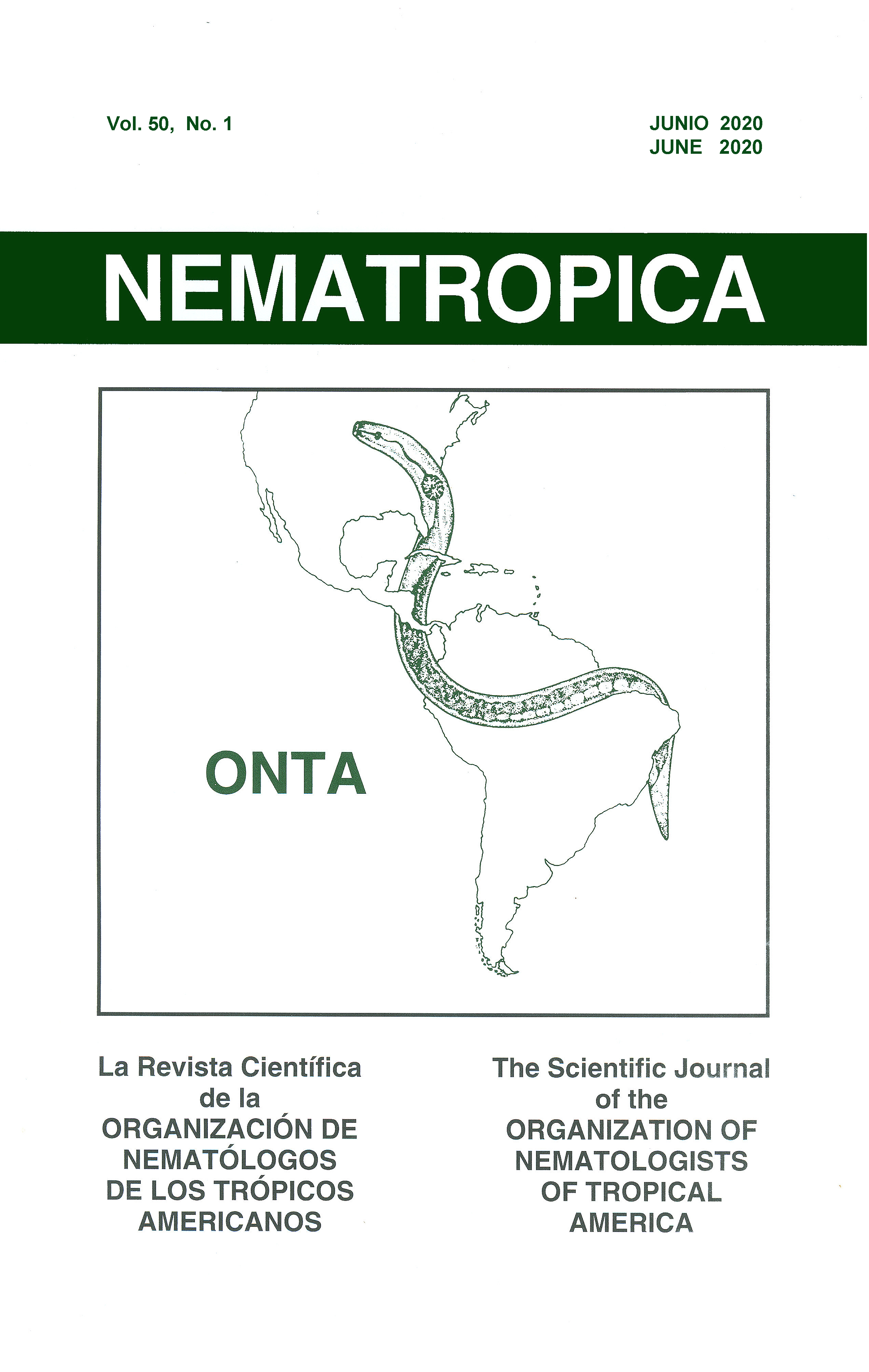BIOCONTROL POTENTIAL OF FUNGAL FILTRATES ON THE RENIFORM NEMATODE (ROTYLENCHULUS RENIFORMIS) IN CORIANDER AND COWPEA
Abstract
This study evaluated the effect of fungal culture filtrates on the plant-parasitic nematode Rotylenchulus reniformis in vitro on cowpea and coriander plants in a greenhouse. Seventeen fungal isolates from seven genera obtained from the coriander rhizosphere were used, including: Aspergillus, Fusarium, Purpureocillium, Penicillium, Talaromyces, Thielavia, and Trichoderma. The biocontrol tests on R. reniformis were performed in 96-well culture plates and juvenile mortality rates evaluated after 24 and 48 hr of exposure to the filtrates and after 12 days for egg hatch tests. For the in vivo tests, cowpea and coriander were inoculated with 1,000 juveniles and eggs/pot, and the effects of the filtrates on the reproduction of R. reniformis were evaluated after 45 days. Filtrates from Fusarium inflexum, Thielavia terricola, Trichoderma longibrachiatum, T. brevicompactum, T. harzianum, Penicillium citrinum, and two new Penicillium species, showed promise for nematicidal activity and hatch inhibition. These fungi caused nematode mortality rates of 58 to 100% and allowed only 5 to 20% of the juveniles to hatch in the in vitro tests. In the in vivo tests with cowpea and coriander, filtrates from these isolates significantly reduced the number of egg masses and the reproductive factor (final population density/initial population density) of R. reniformis. These results demonstrate the potential and efficiency for biocontrol of R. reniformis by these fungi.

